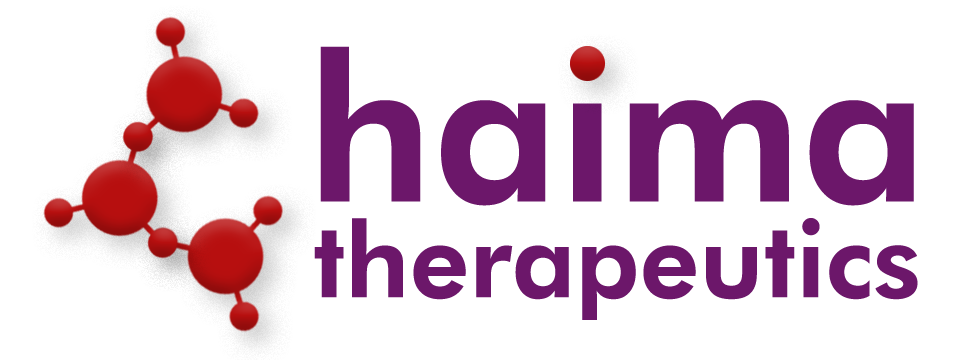Haima Therapeutics Secures $1.9M NIH SBIR Phase II to Advance SynthoPlate for Antiplatelet-Treated Trauma and Traumatic Brain Injury (TBI)
July 17, 2025 – Haima Therapeutics, a preclinical stage biopharmaceutical company developing platelet-inspired therapies for bleeding control, announced a $1.9 million SBIR Phase II grant from the NIH’s NHLBI to advance SynthoPlate in preclinical models of traumatic brain injury (TBI) in the setting of P2Y12 inhibitor therapy.
Antiplatelet therapy is widespread in the U.S. (over 15 million prescriptions annually), and patients on P2Y12 inhibitors face markedly higher rates of severe bleeding and up to six-fold higher 30-day mortality after TBI. With no FDA-approved reversal agents, there’s a critical need for rapid, reliable solutions.
SynthoPlate is a shelf-stable, intravenously administered nanoparticle designed to mimic key platelet functions – adhesion, aggregation, and amplification – at injury sites. Haima has previously demonstrated that SynthoPlate can improve hemostatic function in various bleeding scenarios, including trauma, thrombocytopenia, dilutional coagulopathy, and von Willebrand’s Disease. This new funding will enable Haima to evaluate SynthoPlate's ability to bypass the antiplatelet effects of P2Y12 inhibitors to rapidly restore coagulation. SynthoPlate’s innovative design is insensitive to the effects of P2Y12 inhibitors and leverages natural platelets’ other hemostasis mechanisms to quickly restore clotting function, offering a novel approach to hemorrhage control in patients with impaired platelet function where no treatments currently exist.
“This award allows us to expand the utility of our novel hemostatic agent, SynthoPlate, to other clinically meaningful indications. We’ll run the definitive studies to establish dose, regimen, and safety margin for SynthoPlate in patients on P2Y12 therapy, and convert that evidence into a focused IND strategy.”, said Ujjal Didar Singh Sekhon, PhD, Principal Scientist at Haima, serving as the Principal Investigator for this grant. “It’s a clear step toward making hemorrhage control reliable when it matters most.” How about: The development of this innovative therapy provides a new tool to control bleeding in patients where no options currently exist.
“I’ve worked with the Haima team and this technology for over eight years and have seen firsthand how SynthoPlate performs in rigorous preclinical models of trauma,” said Dr. Matthew Neal, Chief Medical Officer at Haima and Professor of Surgery at the University of Pittsburgh Medical Center. “Some of the most challenging cases I see clinically involve patients on antiplatelet agents who suffer traumatic brain injuries. SynthoPlate’s ability to bypass platelet inhibition and restore clotting function represents a truly promising therapeutic option for this high-risk population.”
“This grant is an opportunity to explore a novel technology to provide rapid, effective treatment to an ever-growing population of patients on antiplatelet agents for a variety of medical reasons who have suffered from a traumatic brain injury, such as from a fall." said Dr. Michael Goodman, Professor of Surgery at the University of Cincinnati. "This product represents a therapeutic modality that can move post-trauma treatment away from its reliance on donated blood products to stabilize and improve head injured patients."
Activities outlined under this Phase II grant will define SynthoPlate’s dosing rationale and safety margin under antiplatelet therapy, including tolerability, PK/PD modeling, and validated TBI efficacy studies. Outcomes from the funded studies will inform IND-enabling development and support future clinical evaluation in high-risk bleeding settings.
About Haima Therapeutics – Haima Therapeutics is a preclinical biopharmaceutical company developing bioinspired therapeutics that mimic natural platelet functions. Its lead product, SynthoPlate, is a fully synthetic, nanoparticle designed to enhance clot formation at sites of vascular injury. Beyond TBI, Haima is advancing a pipeline applying the SynthoPlate architecture to high-risk bleeding settings, including perioperative bleeding, trauma resuscitation, and thrombocytopenia. The platform’s modular design supports program expansion while leveraging shared manufacturing and analytics.
Learn more at www.haimatherapeutics.com, follow us on twitter @HaimaThr, or email us at info@haimatherapeutics.com
NIH Funding Acknowledgment – Research reported in this publication was supported by the NHLBI of the NIH under Award Number 1R44HL180258-01. The content is solely the responsibility of the authors and does not necessarily represent the official views of the NIH.

